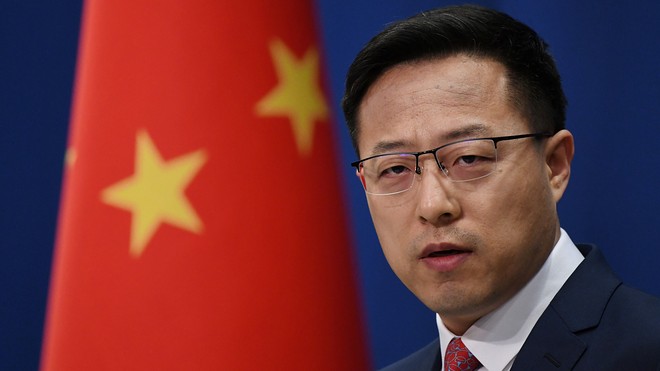Beijing: China continued to parry questions about the brutal attack carried out by its troops on the Indian soldiers with iron rods and spikes June 15. It also declined to respond to queries on reports of it building a dam on the Galwan river at the Sino-Indian border to obstruct its flow.
Foreign Ministry spokesman Zhao Lijian in his media briefing skirted questions for a second consecutive day about the casualties suffered by the Chinese troops in their clash with the Indian soldiers at the Galwan Valley, Monday night.
Asked about allegations that Col Santosh Babu and other Indian soldiers were brutally attacked with iron rods and spikes by Chinese soldiers and whether the confrontation started when the Indian troops arrive to demolish structures set up by China along the Line of Actual Control (LAC), Zhao reiterated China’s allegation, squarely blaming the Indian troops for the incident.
“The right and wrong of this case is very clear and responsibility doesn’t lie with the Chinese side,” Zhao said. He added that China has already provided the details of the case.
Zhao referred to Wednesday’s telephone talks between External Affairs Minister S Jaishankar and his Chinese counterpart Wang Yi. He said ‘both sides agreed to deal with the serious situation caused by the conflict in a just manner and jointly observe the consensus reached at the commander level meeting, de-escalate tensions as soon as possible’.
The two ministers have also agreed based on the agreements reached by the two countries reached so far to maintain the peace and tranquility in the border areas, informed Zhao.
To a question about satellite photos taken June 16 showing China building a dam on the Galwan river blocking its water flow and whether it violated any agreement with India, Zhao said, “I am not aware of the specifics you mentioned.”
He added: “I would like to stress the Indian troops at the western section of the boundary and some other areas crossed LAC and tried to unilaterally change the status quo. The Chinese troops are committed to uphold peace and tranquility along the border areas. They have been exercising restraint. They are determined to safeguard our national sovereignty and security.”
Zhao said after the border violence both sides are in communication and coordination on the matter through diplomatic and military channels, he said.
“Both sides agreed to deal with the serious matter caused by the conflict at the valley in a just manner, jointly observe the commander level talks consensus and deescalate the tensions as soon as possible and safeguard the peace and tranquility,” informed Zhao.
“Currently the overall situation is stable and controllable. We believe under the guidance of the important consensus reached by the leaders of the two countries the two sides can deal with the relevant matter jointly safeguard peace and stability at the border areas and work for the sound development of bilateral relations,” he said.
A large number of Indian and Chinese troops have been engaged in an eyeball-to-eyeball situation in Galwan Valley and certain other areas of eastern Ladakh for the last five weeks, including in Pangong Tso, Galwan Valley, Demchok and Daulat Beg Oldie in eastern Ladakh.







































